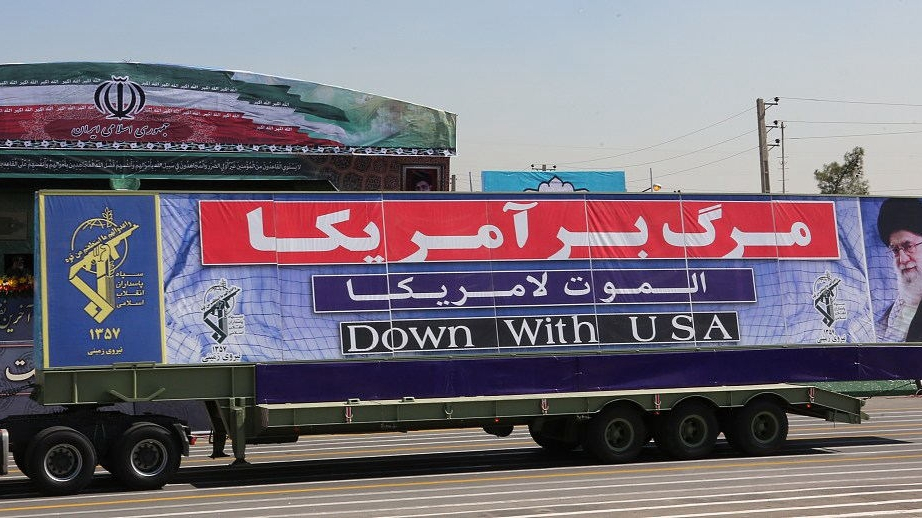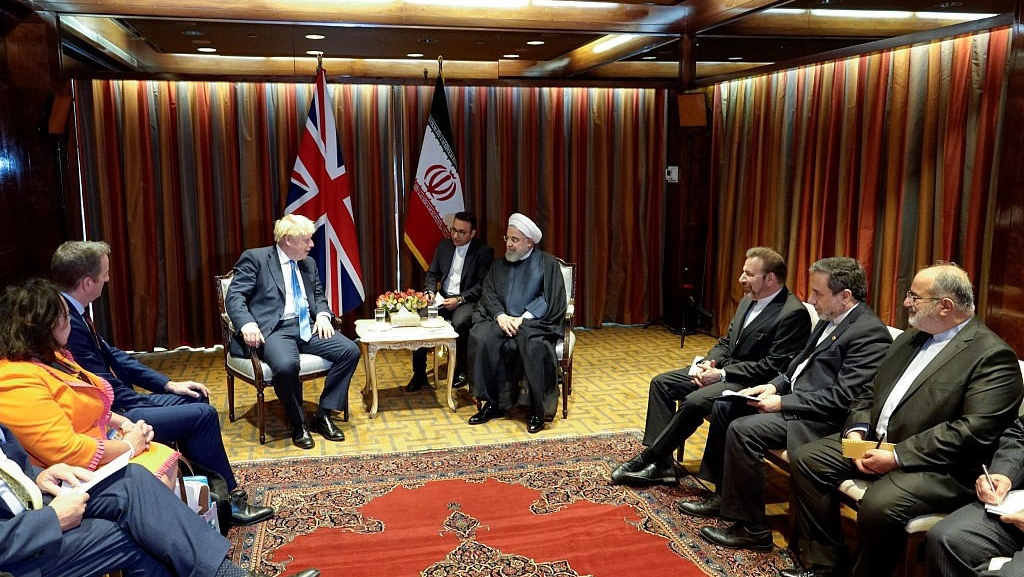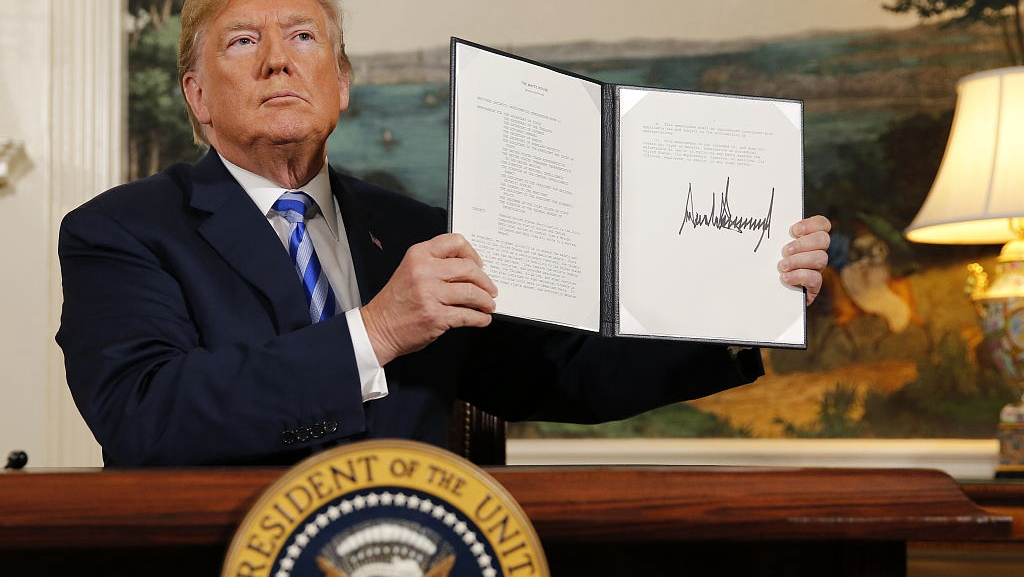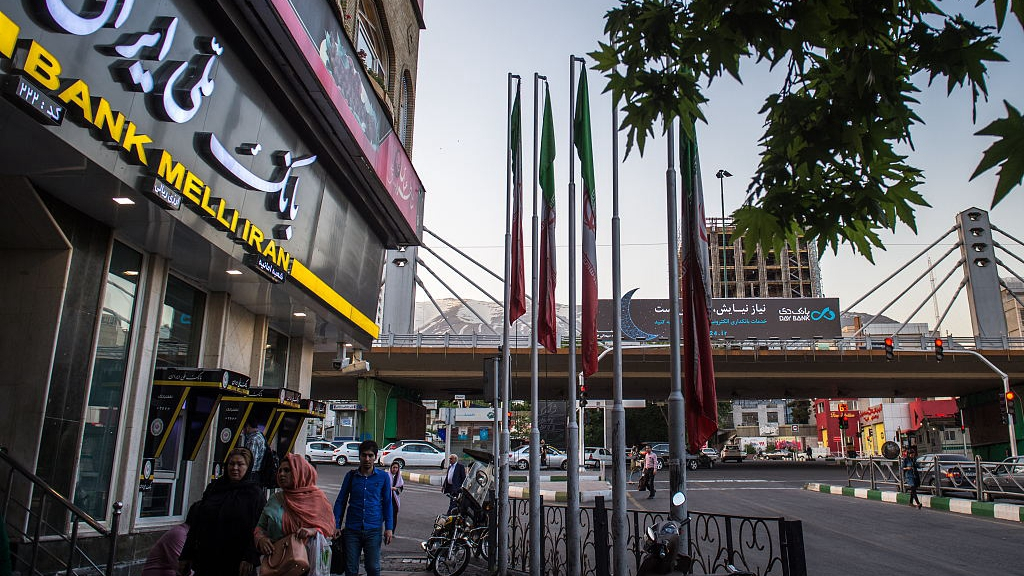
The muscular language used by Iran's President Hassan Rouhani in attacking the United States at the United Nations General Assembly this week means that the crisis in relations between the two nations will likely remain locked in a stalemate for the time being, at least.
Rouhani accused the U.S. of conducting "merciless economic terrorism" and engaging in "international piracy," offering no real hint that a compromise is around the corner.
American President Donald Trump slammed Iran's "bloodlust" and said the Islamic nation is "one of the greatest threats" to the planet in an earlier UN speech in which he also did not give an inch.
Several weeks ago, it seemed that the pair might have used the opportunity of the annual gathering of world leaders to hold a summit based on Trump's stated willingness. But the chances of that happening were already receding even before the September 14 attack on key oil facilities in Saudi Arabia that has been blamed on the Iranians who deny any responsibility.
"As long as Iran's menacing behavior continues, sanctions will not be lifted, they will be tightened," Trump told the General Assembly on Tuesday.

Iranian President Hassan Rouhani (C-R) meets British Prime Minister Boris Johnson on the sidelines of the 74th session of the UN General Assembly in New York, September 25, 2019. /VCG Photo
Iranian President Hassan Rouhani (C-R) meets British Prime Minister Boris Johnson on the sidelines of the 74th session of the UN General Assembly in New York, September 25, 2019. /VCG Photo
"Our response to any negotiations under sanctions is negative," was Rouhani's defiant response when he got to the podium a day later.
Economic pressure, rather than military action, appears to be Trump's preferred method of punishment in international relations, even though his Secretary of State Mike Pompeo called the oil attack an act of war.
'Weapon of poverty'
Last week, the administration imposed another round of sanctions that target the Central Bank of Iran, the National Development Fund of Iran and Etemad Tejarate Pars Co, an Iranian company that U.S. officials say is used to conceal financial transfers for Iranian military purchases.
The Iran economy has been hit hard since the U.S. reinstated sanctions after unilaterally pulling out in May 2018 of the international nuclear deal that had been signed with Tehran three years earlier. Under the agreement, the Iranians had agreed to limit their nuclear program in exchange for lifting previous crippling economic penalties.
"We will never negotiate with an enemy that seeks to make Iran surrender with the weapon of poverty," Rouhani said at the UN, in an apparent acknowledgment that his sanctions hurt.
Trump spurned an opportunity to attack Iran for shooting down an American surveillance drone in June when he called off airstrikes with just 10 minutes remaining.
Even one of the U.S. president's staunchest allies on Capitol Hill, Republican Senator Lindsey Graham, said that the Iranians had seen a sign of weakness in that Trump reversal and went on to warn weeks later that the U.S. has "lost deterrence" with Tehran.
With typical bombast after the Saudi oil attack, Trump tweeted that the United States was "locked and loaded" to respond.

President Donald Trump announces he is pulling the U.S. out of the Iran nuclear deal in the Diplomatic Reception Room of the White House in Washington, on May 8, 2018. /VCG Photo
President Donald Trump announces he is pulling the U.S. out of the Iran nuclear deal in the Diplomatic Reception Room of the White House in Washington, on May 8, 2018. /VCG Photo
But the president may feel his hands are tied as he campaigned against U.S. military warfare around the globe ahead of gaining office in 2016 and is due to seek reelection in a little over a year.
Trump "has grown increasingly cautious as the reality of any military actions increased," Jon Alterman, a Middle East expert at the Center for Strategic and International Studies and a former State Department official, told Reuters this month.
'Edge of collapse'
"There's a large constituency the president has that thinks it would be lunacy to go to war against Iran," he said. "There's a large part of his base that thinks the craziest thing we could do is committing ourselves to endless wars in the Middle East."
But can another conflict in the region to add to the hostilities in Syria and Yemen be avoided? Rouhani raised the stakes in his UN speech with this ominous warning: "Our region is on the edge of collapse, as a single blunder can fuel a big fire."
He said his country will "not tolerate provocative intervention of foreigners" as American military reinforcements head to the Gulf region that officials claimed will be "defensive in nature."

Pedestrians pass by a Bank Melli Iran Inc. bank branch in Tehran, Iran, on Saturday, May 18, 2019. President Trump has warned Iran not to threaten the U.S. or face ruinous consequences as tensions mount between Washington and Tehran. /VCG Photo
Pedestrians pass by a Bank Melli Iran Inc. bank branch in Tehran, Iran, on Saturday, May 18, 2019. President Trump has warned Iran not to threaten the U.S. or face ruinous consequences as tensions mount between Washington and Tehran. /VCG Photo
Some analysts have suggested that Iran may be keen to tough it out in the hope that Trump loses at the polls in 2020, though others argue that the country is in no condition for a prolonged confrontation with the U.S.
Whatever happens, it is clear that, for now, the Iranians aren't running scared, at least not publicly. Republican supporters had argued that Trump would wield U.S. power around the world in a way that his predecessor Barack Obama was reluctant to do.
"By embracing America's strength rather than apologizing for it, Trump has reminded every nation on earth – including his own – how much power America has, and how risky it is for the worst actors in the world to challenge it," conservative U.S. commentator Michael Graham wrote in June last year.
And yet despite copious saber-rattling and other types of pressure, some of the actors, in the American eyes, in places like Iran, the Democratic People's Republic of Korea and Venezuela, have remained defiant. Economic pressure can have its limits in the face of a determined foe, as the Cuban example proves.
Top Photo: An Iranian army truck with an anti-America slogan leads military vehicles during the annual military parade marking the anniversary of the start of Iran's 1980-1988 war with Iraq, on September 22, 2015, in the capital Tehran. /VCG Photo